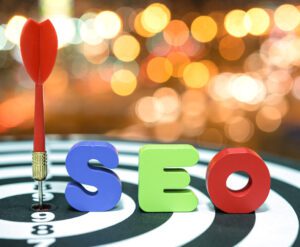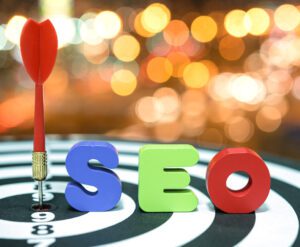Marketing automation management involves efficiently managing and automating various marketing activities using specialized tools and software. It allows businesses to streamline their marketing efforts and ensure the smooth execution of campaigns. In today’s fast-paced digital landscape, implementing marketing automation tools has become essential for businesses.
These tools enable businesses to automate repetitive tasks, streamline lead generation, nurture customer relationships, improve campaign targeting, and enhance efficiency. The benefits of marketing automation are vast and undeniable, including saving time, reducing costs, and increasing revenue.
However, understanding consumer behavior and market trends is crucial to reap the benefits of marketing automation. To get insights into your target audience’s preferences, purchasing habits, and online behavior, you can tailor your marketing strategies to engage and convert prospects effectively. Staying updated with market trends allows you to adapt and seize new opportunities, making your marketing efforts more impactful and successful.
Understanding Marketing Automation
Marketing automation involves using software platforms and technology to automate repetitive marketing tasks and simplify workflows. This includes email marketing, social media management, lead generation, customer segmentation, and more. By using marketing automation tools, businesses can run targeted marketing campaigns, nurture leads, and deliver personalized content to their audience on a large scale.
Marketing automation provides many advantages for businesses, significantly influencing their profitability. Companies can optimize their campaigns by automating key marketing activities like lead generation, email marketing, social media posting, and customer nurturing, saving valuable time and resources. Consequently, this enhances campaign efficiency and effectiveness.
Marketing automation tools are particularly useful in managing complex, multi-channel campaigns. You can use pre-designed templates to engage with your customers or create your own from scratch. These tools can also help qualify and distribute leads to your sales representatives. Additionally, incoming information can be automatically scored and prioritized.
Another significant advantage of using marketing automation tools is the ability to measure the success of your campaigns. By analyzing the return on investment (ROI) generated from your campaigns, you can refine your marketing strategies to achieve better results.
Benefits of Using Marketing Automation
Increased Efficiency and Productivity
Marketing automation saves time and eliminates manual tasks, allowing marketers to focus on strategic initiatives. Marketing teams can accomplish more in less time by automating repetitive processes such as email follow-ups and social media scheduling. This improved efficiency enables marketers to dedicate more time to creating compelling content, analyzing campaign performance, and developing effective strategies.
Enhanced Lead Generation and Nurturing
Marketing automation empowers businesses to capture, track, and nurture leads more effectively. With lead scoring systems and automated workflows, companies can identify high-potential prospects and deliver personalized content based on their interests and behaviors. This customized approach improves the customer experience, increases engagement, and ultimately drives conversions.
Implementing Effective Data Management Practices
Data management is crucial for successful marketing automation. Ensuring your customer data is accurate, up-to-date, and well-segmented is important. In addition, your data management practices should comply with privacy regulations and protect customer information. Regularly cleaning and updating your database is essential to ensure that your automated marketing campaigns are accurate and relevant.
Developing Targeted Content and Workflows
Creating engaging and relevant content to maximize the impact of your marketing automation efforts is essential. Developing personalized workflows that align with each stage of the customer journey is key. Tailoring your messaging according to each specific customer segment and using automation to deliver the right content at the right time will significantly improve your results. Additionally, leveraging A/B testing to optimize your campaigns and constantly refining your messaging will help drive better outcomes.
Monitor, analyze, and optimize
Once you have set up your marketing automation system, monitoring its performance and analyzing key metrics is crucial. Track your campaigns’ effectiveness, measure conversion rates, assess customer engagement, and gather relevant data. By utilizing these insights, you can identify areas for improvement, optimize your workflows, and refine your strategies. It is important to continually monitor and optimize your marketing automation efforts to ensure they align with your goals and yield the desired results.
How to Optimize Your Automation Campaigns for Success
Automation campaigns are a crucial component of any successful marketing strategy. However, it is important to streamline and optimize these campaigns effectively to achieve the desired results. Here, will explore some key strategies to ensure the success of your automation campaigns.
Define clear Goals and objectives:
Before you use a marketing automation platform, setting clear goals and creating a detailed plan is important. Your objectives could include increasing website traffic, growing your email subscriber list, or boosting sales. You should also identify key performance indicators that align with your business objectives and figure out how automation can help you reach those goals. A well-thought-out strategy will help you implement the platform effectively and ensure it meets your specific needs. Without clear goals in mind, it can be difficult to measure your campaign’s success. Whatever your goals, ensure they are specific, measurable, achievable, relevant, and time-bound (SMART).
Select the appropriate automation platform:
When selecting an automation platform, it is important to consider your specific needs, budget, and the potential for growth and integration. Research the available options and choose a platform that aligns with your business goals and has a user-friendly interface. This will make it easier to adopt and use the platform effectively.
Effective Email Marketing:
Email marketing remains an effective method for persuading customers to make a purchase. Managing email campaigns can pose a challenge, especially when dealing with a large number of subscribers. Marketing automation tools simplify the process with pre-made email templates, testing features, and scheduling options. Targeted emails are sent automatically to subscribers through drip campaigns to keep them engaged without needing constant manual intervention.
Segment Your Audience:
Not all customers are alike, and personalized marketing has proven more effective. By segmenting your audience based on demographics, interests, or behaviors, you can tailor your automation campaigns to better resonate with each group. This personalization can significantly improve engagement and conversion rates.
Craft Compelling Content:
Content is key in any marketing campaign. Whether it’s an email, social media post, or landing page, ensure your content is engaging, informative, and valuable to the recipient. Utilize persuasive language and incorporate visuals, such as images or videos, to make your content more appealing. It is vital to emphasize creating compelling and relevant content to utilize the potential of marketing automation. Develop personalized workflows that are specific to every step of the customer experience. Personalize your messaging for each distinctive customer segment and use automation to deliver the right content at the right time. Use A/B testing to improve your campaigns and continuously refine your messaging for better results.
Monitor and Measure:
Regularly monitor the performance of your automation campaigns using key metrics, such as open rates, click-through rates, or conversion rates. This data will provide insights into your campaigns’ effectiveness and help identify improvement areas. Use analytics tools and reporting dashboards to measure and evaluate your campaigns’ success accurately.
Automate Feedback Loops:
Interaction and communication with your audience are crucial for building strong customer relationships. Automate feedback loops to promptly address customer queries or concerns and gather feedback on their experiences. By actively engaging with your audience, you can foster trust and loyalty.
Stay Compliant with Regulations:
Ensure that your automation campaigns are compliant with relevant regulations and industry standards. Be aware of data protection laws, spam regulations, and privacy policies to avoid legal issues damaging your brand reputation.
In today’s rapidly evolving digital era, marketing automation has become an essential tool for businesses aiming to succeed. By harnessing the power of automation, companies can streamline their marketing processes, increase efficiency, and provide personalized experiences to their target audience. However, achieving success requires careful campaign planning, strategic thinking, and continual optimization of your approach. Embrace marketing automation and unlock its potential to drive growth, enhance customer engagement, and propel your business to new heights in the dynamic world of digital marketing.








